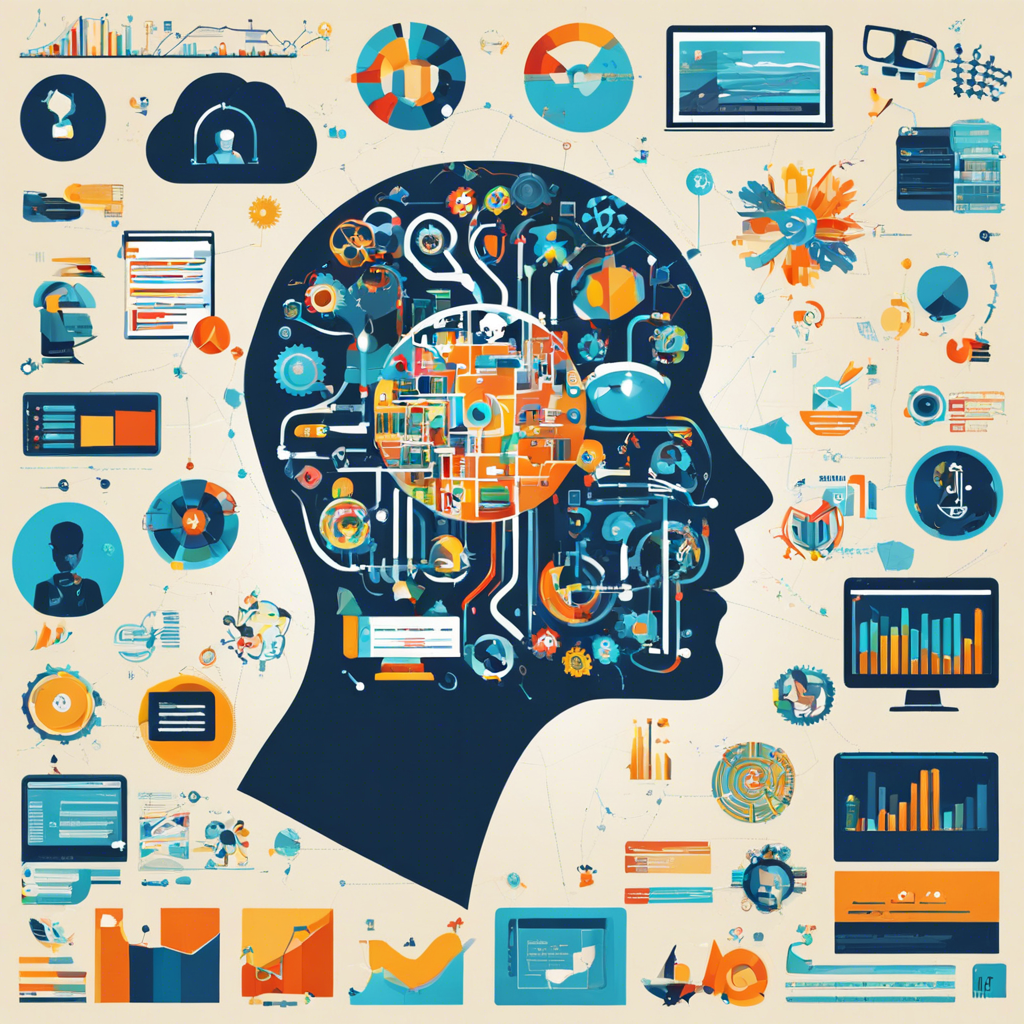AI’s role in revolutionizing search engine optimization tools is analyzed, showcasing its potential impact on digital marketing strategies.
The field of search engine optimization (SEO) is undergoing a dramatic transformation as artificial intelligence (AI) continues to make its mark. This article delves into the emerging relationship between AI and SEO tools, exploring how this intersection is reshaping the way we approach digital marketing strategies. With AI’s increasing sophistication, its influence on SEO practices is becoming increasingly significant, offering new avenues for businesses to improve their online visibility and user engagement.
The AI Revolution in SEO: Unlocking New Possibilities
The integration of AI into SEO tools is not just a technological upgrade but a paradigm shift in the way search engine optimization is approached. AI-driven algorithms are revolutionizing the process by which search engines understand and interpret content, creating a new era of intelligent optimization.
AI’s ability to process vast amounts of data, analyze user behavior, and make sophisticated predictions is transforming SEO from a largely manual process into an automated, data-driven strategy. This shift not only enhances the efficiency of SEO practices but also opens up new possibilities for personalized and contextually relevant content, which is a key to successful digital marketing.
Enhancing Content Creation and Optimization
AI-powered tools are significantly impacting content creation and optimization, the backbone of effective SEO. These tools leverage machine learning algorithms to analyze content performance, identify trends, and provide actionable insights. By predicting the success of content strategies, AI helps marketers create more engaging, relevant, and high-ranking content.
AI-Assisted Tools for Content Creation
Various AI-assisted tools are available to streamline content creation. These include:
- Content Generators: These tools use AI to generate content ideas and initial drafts, which can be particularly useful in overcoming writer’s block.
- SEO Writing Assistants: Such tools provide real-time feedback on content, ensuring it aligns with SEO best practices.
- Content Optimizers: These tools suggest improvements to existing content, such as keyword optimization and readability enhancements.
These tools not only enhance the quality of content but also streamline the creation process, allowing marketers to produce effective content more efficiently. For an in-depth exploration of AI’s role in content creation, consider reading [How AI Transforms Content Creation](https://www.example.com/ai-content-creation), which provides valuable insights into this evolving landscape.
Personalization and Contextualization
AI is instrumental in delivering personalized and contextually relevant content, a key aspect of modern SEO. By analyzing user behavior, preferences, and search intent, AI algorithms can tailor content and search results to individual users.
User Experience and Engagement
The impact of this personalization extends to improved user experience and engagement. When search results and content align closely with user interests and intent, it leads to higher satisfaction and increased time spent on sites, both of which are critical SEO metrics.
Navigating the AI-SEO Landscape: FAQs
How does AI improve keyword research?
AI enhances keyword research by analyzing billions of data points to identify relevant keywords and topics, and predict their potential performance. This includes understanding user intent, suggesting long-tail keywords, and providing insights into content trends and gaps.
Can AI write content that is creative and engaging?
While AI is adept at generating content, it excels more in structure and optimization than in creativity. AI tools can provide a starting point or outline, but human creativity is still essential for crafting compelling narratives and engaging content.
Are there risks associated with AI in SEO?
As with any technology, there are risks. These include potential biases in AI algorithms, over-optimization leading to penalties, and the need for continuous data and algorithm monitoring. Regular reviews and adjustments are necessary to ensure SEO strategies remain effective and ethical.
Conclusion: Embracing the Future of SEO
The integration of AI into SEO tools is redefining digital marketing strategies, offering enhanced content optimization, personalized user experiences, and efficient keyword research. As AI continues to evolve, staying informed about these advancements will be crucial for businesses aiming to maintain a strong online presence. The future of SEO is undoubtedly intertwined with AI, and those who adapt to this new landscape will be well-positioned for success in the digital realm.
—
External Links and Anchor Texts:
1. [The Future of AI in Content Creation](https://www.semrush.com/blog/ai-content-creation/) – The Future of AI in Content Creation
2. [How Artificial Intelligence is Changing SEO](https://www.moz.com/blog/artificial-intelligence-changing-seo) – How AI is Transforming SEO
3. [5 Ways AI Can Improve Your SEO Strategy](https://searchenginewatch.com/2019/06/27/5-ways-ai-can-improve-your-seo-strategy/) – AI’s Impact on SEO Strategies
